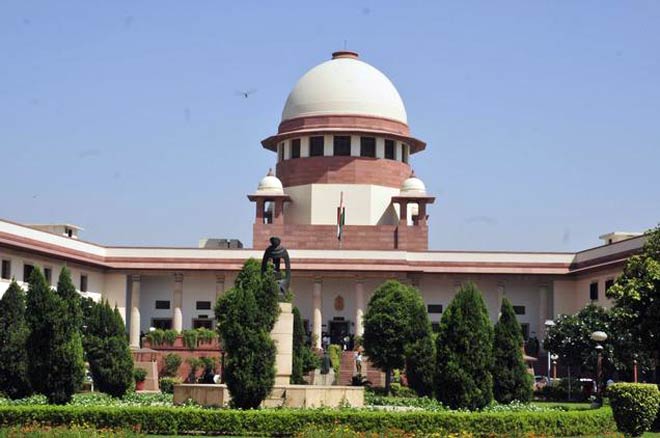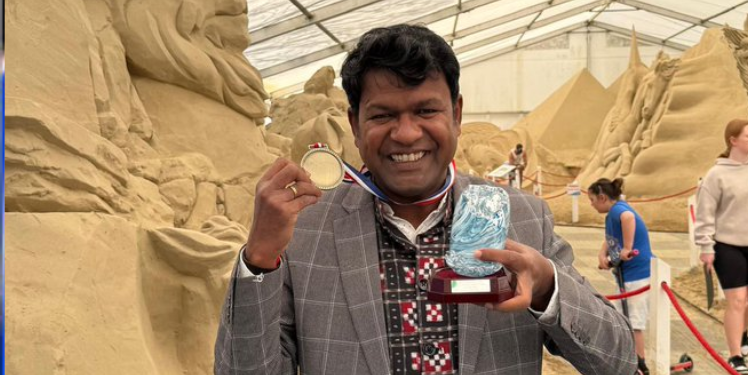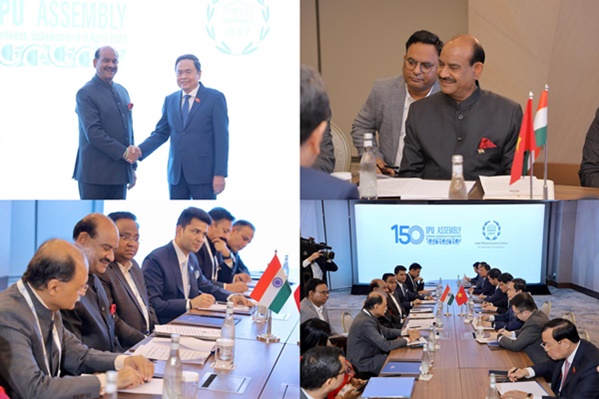SC upholds maintainability of appeals by TN, Kerala, Karnataka
Fri 09 Dec 2016, 12:40:23

The Supreme Court today upheld the maintainability of appeals filed by Karnataka, Tamil Nadu and Kerala against the 2007 award of the Cauvery Water Dispute Tribunal (CWDT) on sharing the river water.
A three-judge bench headed by Justice Dipak Misra said that all the appeals filed by the southern states against the Tribunal's award are maintainable, though the Centre had asserted that the apex court had no jurisdiction to hear appeals against the award of the tribunal.
"We hold all the appeals maintainable. Interim order to continue. List the matter for further hearing on December 15," a bench also comprising justices Amitava Roy amd A M Khanwilkar.
On October 18, the apex court had directed Karnataka to keep supplying Tamil Nadu with 2,000 cusecs of water till further orders.The bench had also said it would first go into the issue of maintainability of appeals filed by Karnataka, Tamil Nadu and Kerala against the award of tribunal and then hear arguments on the report filed by the Supervisory Committee formed to assess the ground realities in the Cauvery basin region.
The Centre, through Attorney General Mukul Rohatgi, had raised a preliminary objection claiming that the CWDT award amounted to a final decree in the dispute and the apex court had no jurisdiction to hear appeals against the award of the tribunal.
But the states had contended that their appeals were maintainable saying the Supreme Court had the jurisdiction to adjudicate the appeals filed by the state against the award of tribunal and that no statute can take away the appellate powers of the apex court under Article 136 of Constitution.
However, Puducherry supported the stand of the Centre that the appeals filed by Karnataka, Tamil Nadu and Kerala are not maintainable.Earlier, Rohatgi had argued that Supreme Court had no jurisdiction to adjudicate the appeals pertaining to the dispute relating to use, distribution and control of inter-state water or river valley.
The attorney general had said as per the constitutional
provisions, the inter-state water dispute tribunal is headed by a retired Supreme Court or High Court judge and its decree has a force like that of a decree of the Supreme Court and thus the apex court cannot hear the appeals against its own order.
provisions, the inter-state water dispute tribunal is headed by a retired Supreme Court or High Court judge and its decree has a force like that of a decree of the Supreme Court and thus the apex court cannot hear the appeals against its own order.
The apex court-appointed panel had in its recent report suggested doing away with "outdated and unscientific water application techniques" to resolve the wrangle, saying both Karnataka and Tamil Nadu were facing water shortage which had created unemployment and financial hardship for the people.
It had said the neighbouring riparian states needed to appreciate interest of Tamil Nadu and Puducherry to protect their established irrigation and Karnataka's aspirations for development and educate their people accordingly.The panel in its 40-page report had noted that farmers in both states were in severe distress and adequate crop compensation must be provided to them.
The Supreme Court had on October 4 directed Karnataka to release 2,000 cusecs Cauvery water every day to Tamil Nadu from October 7 to 18 and deferred its order asking the Centre to set up Cauvery Water Management Board (CWMB) till it finally decided on appeals relating to the age-old dispute. It had yesterday directed Karnataka to continue to supply Tamil Nadu with 2,000 cusecs of water till further orders.
The apex court had also directed the Centre to establish the CWMB, saying once it was constituted, its team would visit the sites to take a prima facie view of the ground reality and submit a report.
On October 1, Karnataka had moved a review petition in the apex court against its three orders on Cauvery water release to Tamil Nadu and direction to the Centre to create the CWMB.
In its review petition, Karnataka said "grave miscarriage of justice" has been caused to it pursuant to the three apex court orders of September 20, 27 and 30, by which it was directed to release 6000 cusecs of water till October 6 and the Centre was to constitute the Board by October 4.
No Comments For This Post, Be first to write a Comment.
Most viewed from Specials
Most viewed from World
AIMIM News
Latest Urdu News
Most Viewed
May 26, 2020
Do you think Canada-India relations will improve under New PM Mark Carney?
Latest Videos View All
Like Us
Home
About Us
Advertise With Us
All Polls
Epaper Archives
Privacy Policy
Contact Us
Download Etemaad App
© 2025 Etemaad Daily News, All Rights Reserved.






















.jpg)
.jpg)
.jpg)

















